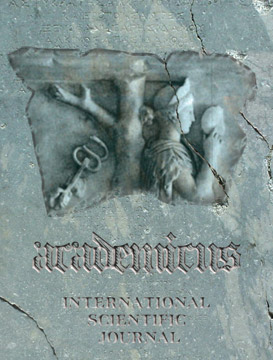Title:
Social inclusion and inclusive education
Full Reference List:
| 1. | Aasland, A and T. Fløtten (2001). “Ethnicity and Social Exclusion in Estonia and Latvia” in Europe-Asia Studies, Vol. 53, No. 7. (Nov., 2001), pg. 1023-1049. |
| 2. | Atkinson. A. B. (1998). “Social Exclusion, Poverty and Unemployment” in A. B. Atkinson and J. Hills Exclusion, Employment and Opportunity, CASE Paper 4, London: Centre for Analysis of Social Exclusion, London School of Economics. |
| 3. | Barry, M. (1998) Social Exclusion and Social Work: An Introduction, In Social Exclusion and Social Work: Issues of Theory, Policy and Practice, Russell House Printing, London, pg. 1-12. |
| 4. | Booth. T. and Ainscow. M. ( 2011). “The Index for Inclusion: developing learning and participation in schools”, 3rd edition. |
| 5. | Cameron. C. (2006). “Geographies of welfare and exclusion: Social Inclusion and Exception” in Progress in Human Geography 30, 3 (2006) Pp. 396–404 Conceptual Issues” in International Journal of Social Welfare 2007: 16: pg. 1-9. |
| 6. | Cappo, D Monsignor, 2002, “Social inclusion as a determinant of mental health & wellbeing” de Haan, A. (1998). “Social Exclusion in Policy and Research: Operationalizing the Concept “pg.11-24. |
| 7. | Driver. S. and Martell. L. (2006). “New Labour: Politics after Thatcherism”, Polity Press, Maleden, USA. |
| 8. | Francis. P.(1997). “Social Capital, Civil Society and Social Exclusion” in Kothari, Uma and Matin Minouge (eds) “Development Theory and Practice: Critical Perspectives” Hampshire: Palgrave. |
| 9. | Geddes. M. and Bennington J. (2001). “Local partnerships and social exclusion in the European Union” London, Routledge. |
| 10. | Gore.Ch. and Figueredo. J. ( 1997). “ Social exlusion and anti-poverty policy: A debate”, International Institute for Labour Studies (Geneva). |
| 11. | Jackson, C. (1999). “Social Exclusion and Gender: Does One Size Fit All?” in The European Journal of Development Research 11(1), Pp. 125-146 Kabeer, N. n.d. Social Exclusion, Poverty and Discrimination: Towards An Analytical Framework. |
| 12. | National Strategy on Social Inclusion 2007-2013 prepared by the ACER, supported by UNICEF, September 2012, pg. 4. |
| 13. | O’Brien, M and Sue Penna, (2007). “Social Exclusion in Europe: Some Conceptual Issues” in International Journal of Social Welfare” 2007:16. pg.1-9. |
| 14. | O’Reilly, D. (2005). “Social Inclusion: A Philosophical Anthropology” in Politics Vol. 25 (2), pg.80-88. |
| 15. | Room, Graham. (1995). “Beyond the Threshold. The Measurement and Analysis of Social Exclusion”. Bristol: Polity Press. |
| 16. | Musaraj, A. (2011). “The Albanian Brain Drain phenomena and the Brain Gain strategy” in Social and Natural Sciences Journal, vol 2, Pp. 32-36. |
| 17. | Sen, A. (2000). “Social Exclusion: Concept, Application and Scrutiny” in Social Development Paper No. 1, Asian Development Bank. |
| 18. | Silver, H. (1994). “Social Exclusion and Social Solidarity: Three Paradigms” in International Labour Review,133 (5-6) Pp. 531 -578. |
| 19. | World Bank (2013). Inclusion Matters: The Foundation for Shared Prosperity. Washington, DC: World Bank. ISBN 978-1-4648-0010-8. |
Back to article
Academicus
International Scientific Journal
pISSN 2079-3715
eISSN 2309-1088
Address:
Sheshi i Flamurit, Rruga Muze
Al-9401 Vlorë, Albania
Tel: +355 68 60 60 555
info@academicus.edu.al
https://academicus.edu.al


